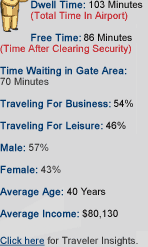


 The Miami HeraldU.S. skies ruled safe in 2002No-death record third in 10 years by Seth Borenstein During stressful times, everyone in aviation refocuses attention, and ''it adds up to a reemphasis of the fundamentals,'' Farrier said Tuesday. Also, with air traffic down about 10 percent from 2000, many older airplanes were taken out of service, making the American airliner fleet younger, he said. ''What a testament to the world's best aviation system,'' Secretary of Transportation Norman Mineta said. ``It is truly remarkable that at the same time we have built unprecedented security into our system, it also has retained its status as the safest system in the world.'' There was only one accident in 2002 that the National Transportation Safety Board considered major, and it didn't really involve an airliner. A FedEx Boeing 727 crashed in Tallahassee in July, injuring one person. There also were more than 300 fatal accidents in small personal planes and charter aircraft that aren't regularly scheduled commercial airliners, such as the crash that killed Sen. Paul Wellstone and his wife, daughter and three aides in October. More security measures -- and probably more travel delays -- are coming with the new year. More than 90 percent of the nation's checked luggage will be mechanically searched for bombs under a Dec. 31 baggage-screening deadline set by law. The rest will get waivers allowing less rigorous examinations, such as checks by bomb-sniffing dogs. With more screening, American fliers feel safer and more secure, according to Ira Weinstein, the president of Airport Interviewing & Research, a White Plains, N.Y., company that surveys fliers for more than 80 airport authorities. In several thousand interviews conducted in late October, 60 percent of U.S. passengers said they had confidence in airport security checkpoints, compared with 51 percent before the Sept. 11 terrorist attacks, Weinstein said. Overall passenger satisfaction increased 12 percent in the past six months, he said. People said they didn't mind the longer waits -- an average of 71 minutes inside terminals after arriving early for screenings as recommended -- and wanted more noticeable security guards in terminals and main concourses, Weinstein said.
|
|
|||||||||
| home | about us | services | methodologies | clients | press | contact us |

